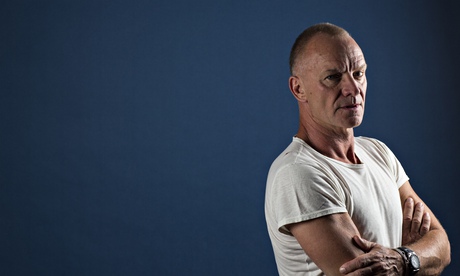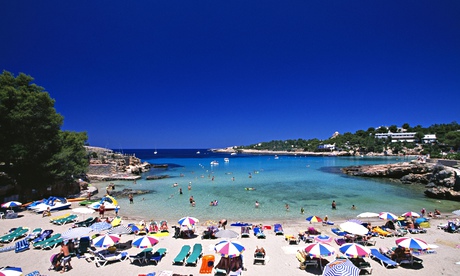WASHINGTON — TO go by much of the commentary about Iraq in recent days, the country is already past the breaking point under the lightning campaign by Sunni insurgents. Reinforced by hardened fighters from Syria and sympathetic communities in northern and western Iraq, the insurgents control much of Mosul, the most important city in northern Iraq, and Tikrit, the home of Saddam Hussein’s clan, and they have laid siege to Samarra, the site of one of Shiism’s most storied shrines. It would be no surprise if the next few weeks brought them to the gates of Baghdad.
But an assault on Baghdad, or even its capture, would be an illusory victory. It can only end in defeat — and the strengthening of the insurgents’ sworn Shiite enemies in Baghdad and, especially, Tehran.
First, consider the brute demographic reality. Unlike in Syria, Sunnis are a relatively small part of the Iraqi population, about 25 percent — though they are a majority in some areas of the west and north. And in Baghdad their numbers are minuscule.
The reason for this lies in an earlier Sunni revolt triggered by the second gulf war. Baghdad was the target then, too, and its Sunni population was about 35 percent. As the Sunnis asserted themselves militarily, Shiites struck back; by 2008, when their fury was largely spent, Sunnis were reduced to as little as 12 percent of the city’s population.
If the insurgents of the Islamic State in Iraq and Syria, or ISIS, enter Baghdad’s residual Sunni neighborhoods, they will likely be welcomed, but they won’t have much to work with, nor will they have the strategic depth they will need in the street fighting that ensues.
Moreover, rather like what happened in Syria, the Sunni offensive is likely to spur a transformation of the Iraqi Army from the sorry mess it is now into a more resilient and operationally effective force.
In Syria, the army reeled in the face of the rebellion in 2011; desertions were rife and large sections of territory were lost to the insurgency. But as incompetent commanders were killed or relieved and a new leadership emerged, the army was able to bring its vastly greater firepower to bear on an increasingly fractionated adversary. Its combat capability was multiplied by the successful integration of civilian militias and the intelligence and tactical advice supplied byIran. This trajectory is likely to be replicated in Iraq.
The character of the Sunni offensive will mobilize more than just the army. Mass execution has been meshed with the use of religious symbolism by the insurgents, who framed their objective as extirpating “the filth” — Shiite teaching and believers — from Najaf and Karbala, the two holiest Shiite cities. In a minority war on a majority population, this is a suicidal tactic. The Shiites will hit back even harder than last time.
In addition to being hobbled by their paltry numbers, the rebels have chosen to make war on an adversary with powerful friends who have a serious stake in the future of Iraq.
Iran has already pledged assistance to the government of Prime Minister Nuri Kamal al-Maliki and reportedly deployed elite units of the Islamic Revolutionary Guards Corps to Iraq. The United States has sent an aircraft carrier and amphibious assault ship to the Persian Gulf and stepped up intelligence help for the Iraqi government.
Although Washington is unlikely to use force directly against the rebels — in part because insurgents don’t present the kind of targets that American air power is optimized to destroy, and in part because of reluctance to re-engage militarily in Iraq — the kind of advisory help, material assistance and diplomatic support that is on offer will stiffen Iraq’s spine. Perceptions, real or imagined, of American and Iranian collusion will help, too.
At the same time, gulf states that tacitly support the rebels as payback against Iran for its perceived takeover of Iraq will do nothing to support the rebels’ military campaign, for fear of creating an uncontrollable situation, even if their nationals privately fund the rebel army.
And once the fighting is over, the Sunnis will be even more isolated than before. President Obama’s call for a multiethnic governing coalition aside, it is inconceivable that Mr. Maliki will now reverse his policy of excluding Sunnis from governance.
In short, despite the rapid success of the Sunni campaign, it is a kamikaze attack that will make the Shiite hold on the Iraqi state stronger, not weaker.
That said, it’s unlikely that Mr. Maliki will have the stomach to retake the Sunni-majority areas of western Iraq anytime soon. The rump Iraq, like the Assad regime in Syria, will be ever more in thrall to Iran, and committed to domestic policies that make the reconstitution of the country via a political process ever more unlikely.
That’s hardly an optimal outcome for Washington: Among other things, Washington’s support for the Maliki government will put further strain on its ties to the gulf states; it will also complicate any effort to deal aggressively with Iran, with which it will find itself in an odd-couple alliance.
American policy makers might anticipate that the insurgency will burn itself out before it presents a real threat to American interests. But they can’t relax too much, because to the extent that this sectarian brawl produces something resembling a winner, it won’t be in Washington, Mosul or Baghdad — but in Tehran.






